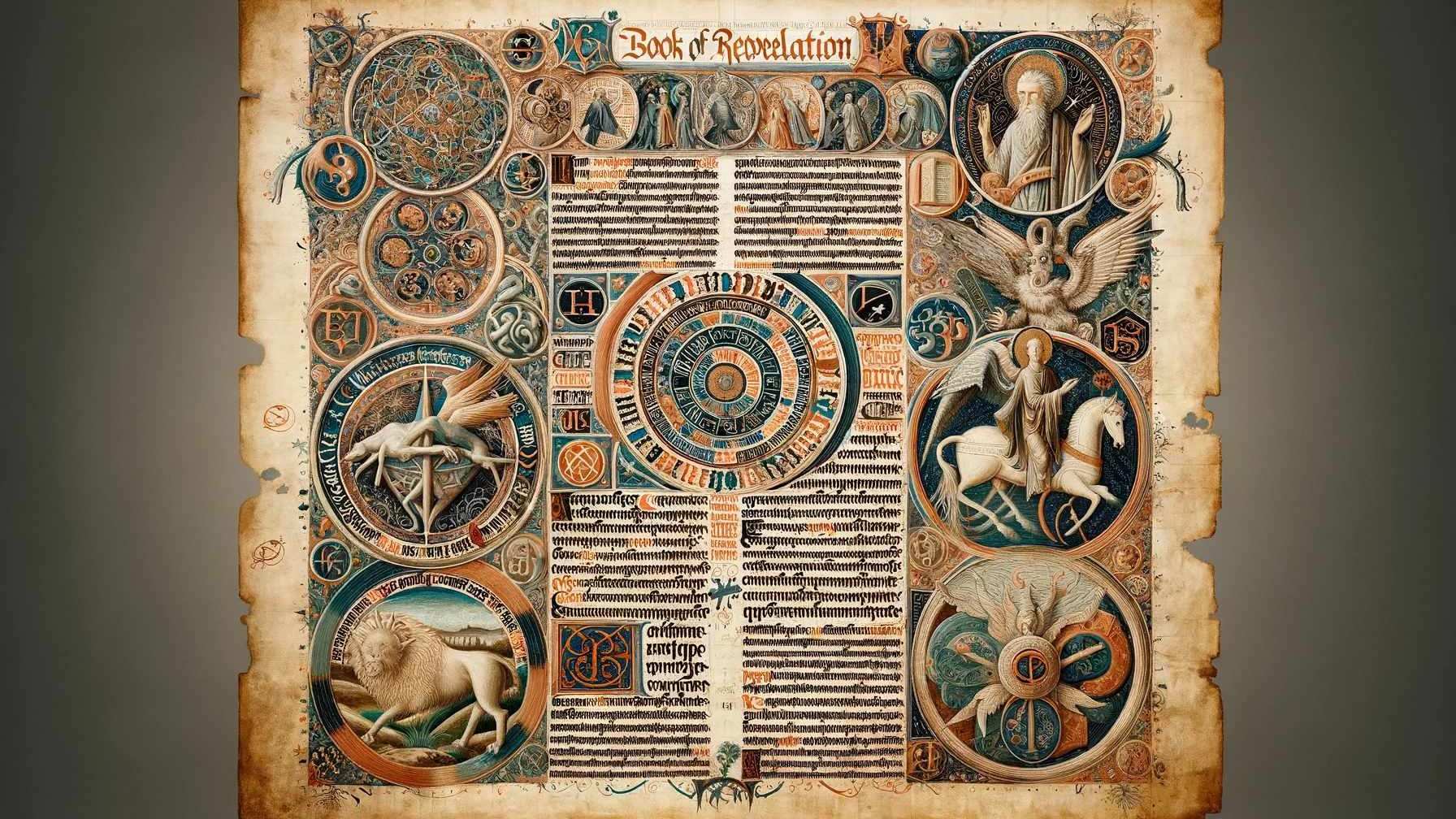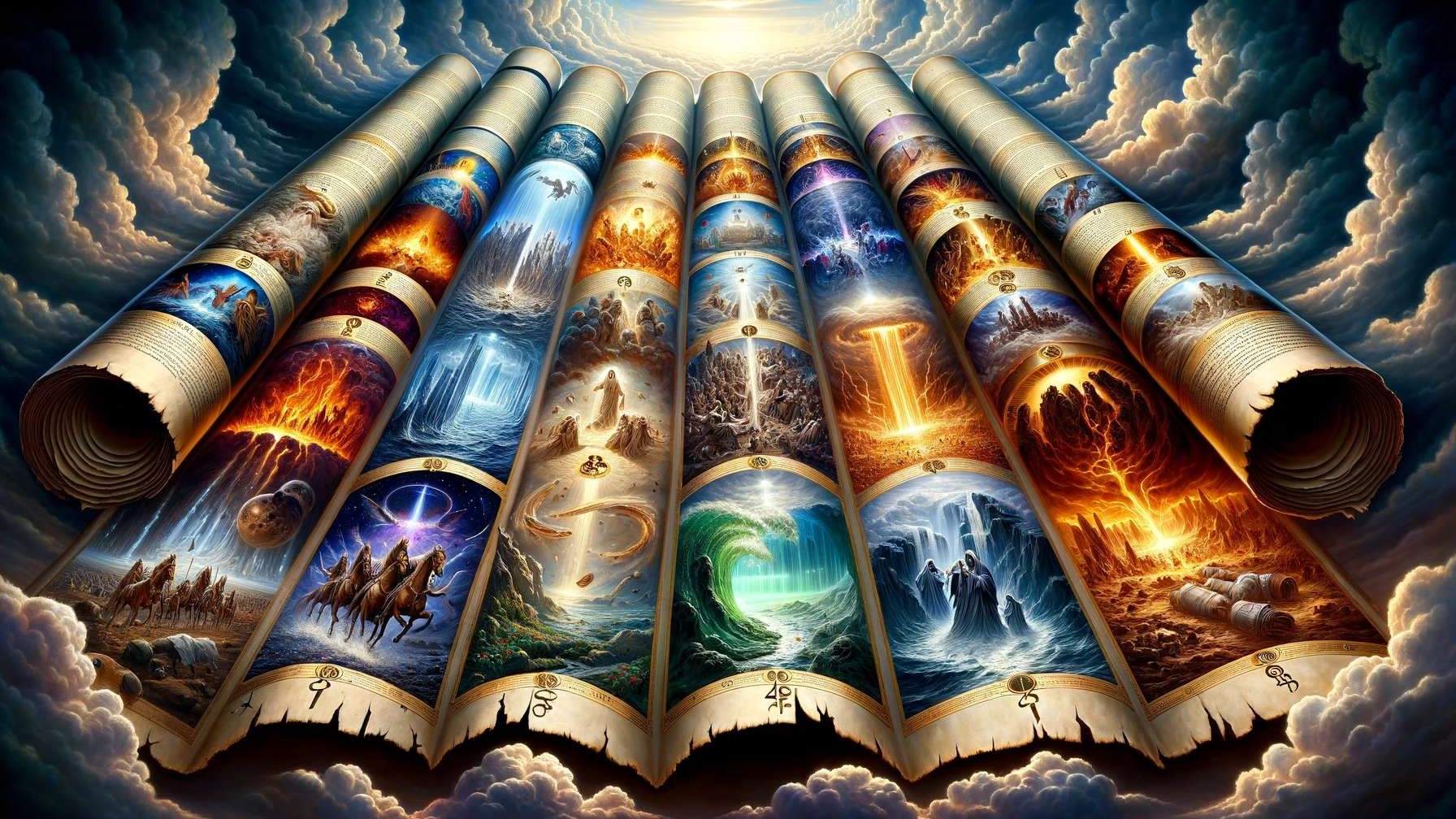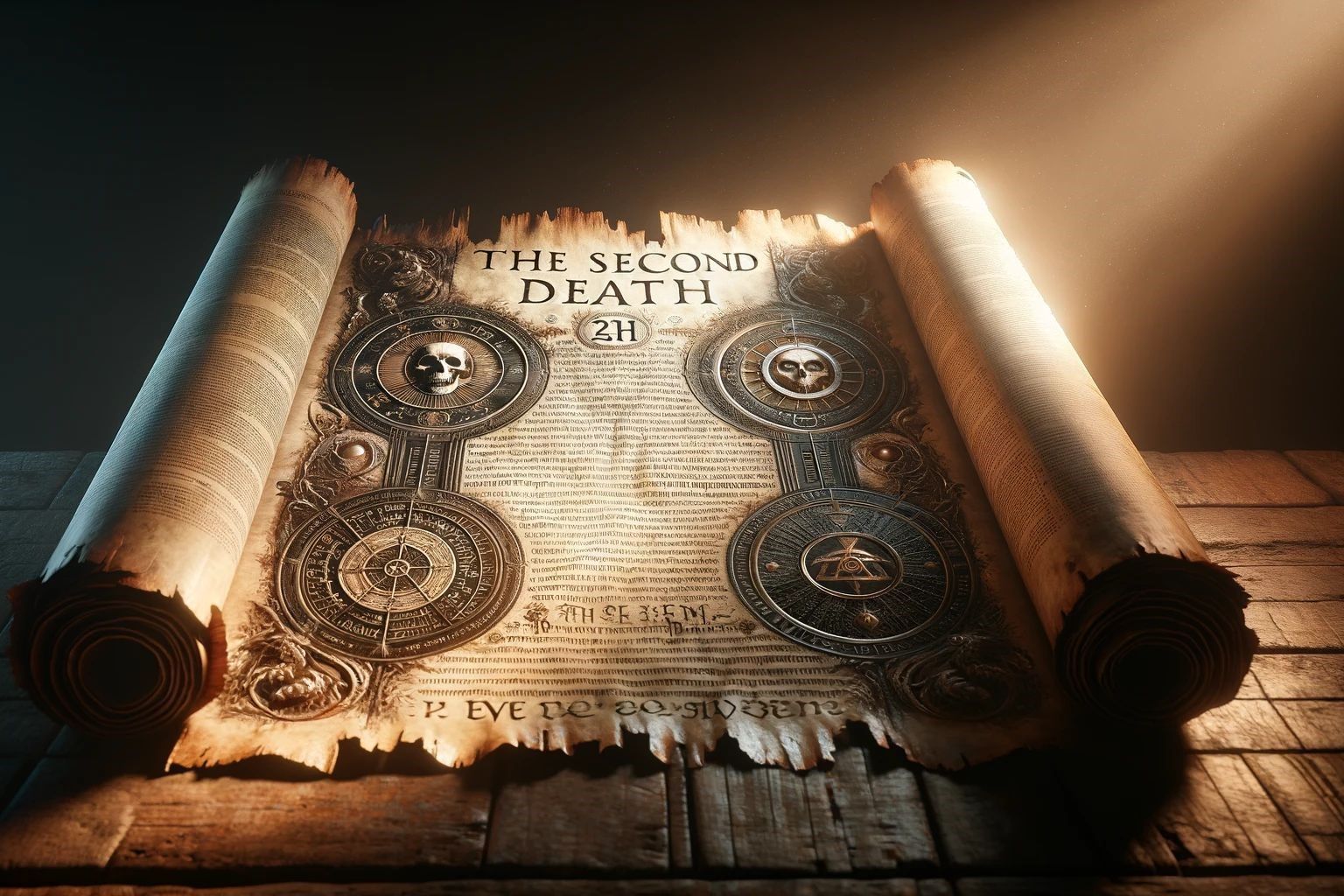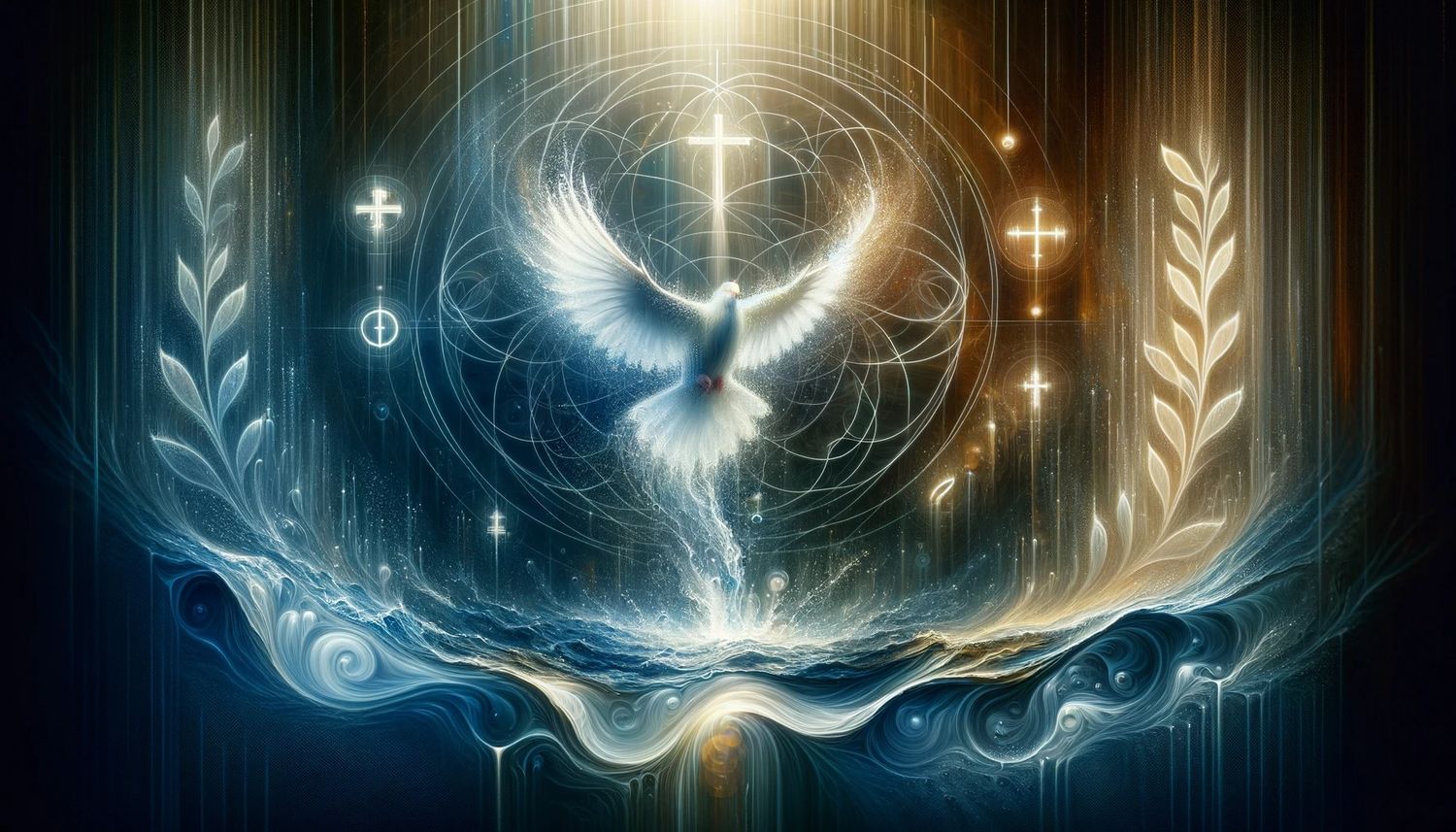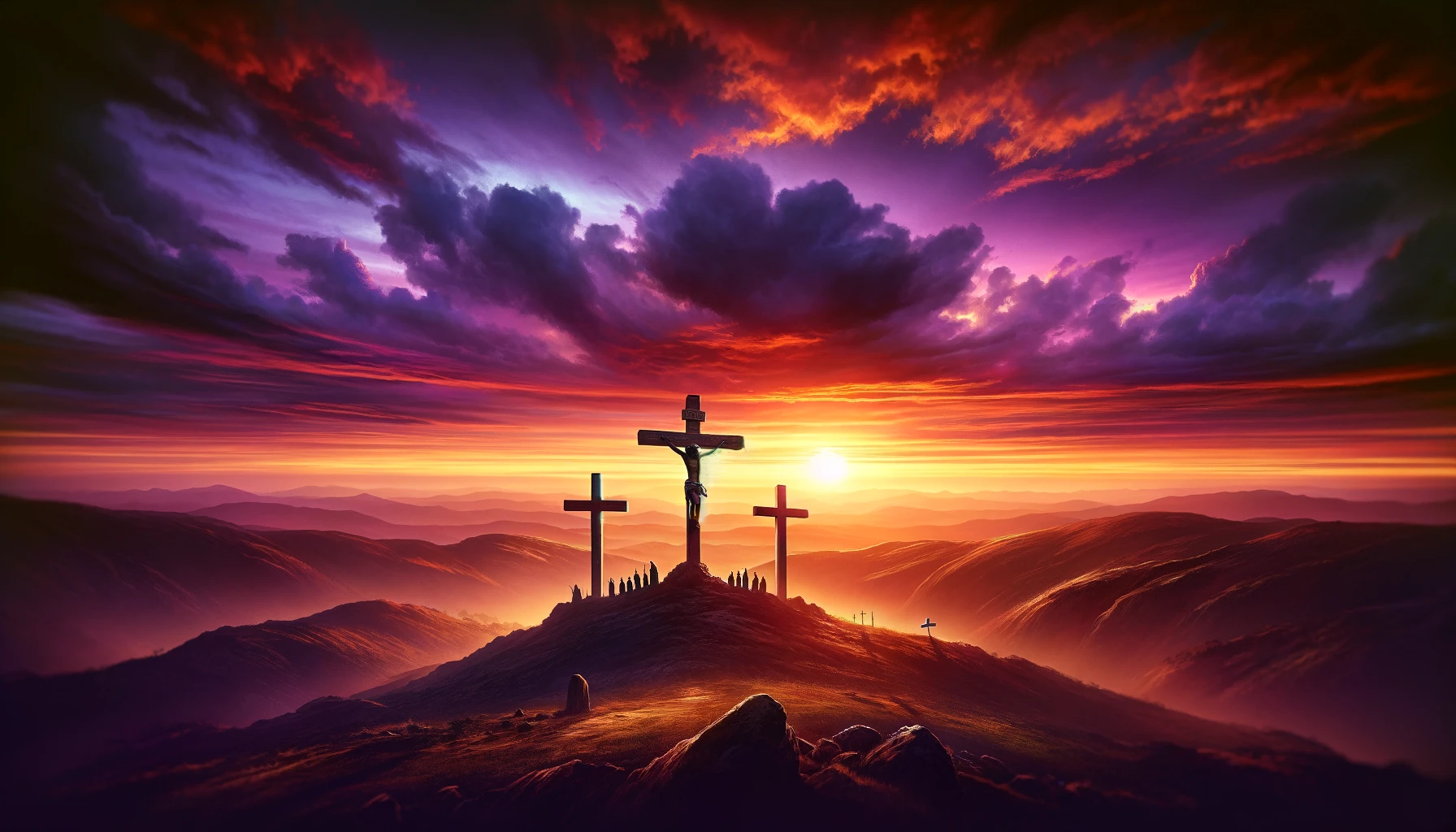Home>Bible Facts>What Does The Book Of Revelation Say About The Rapture
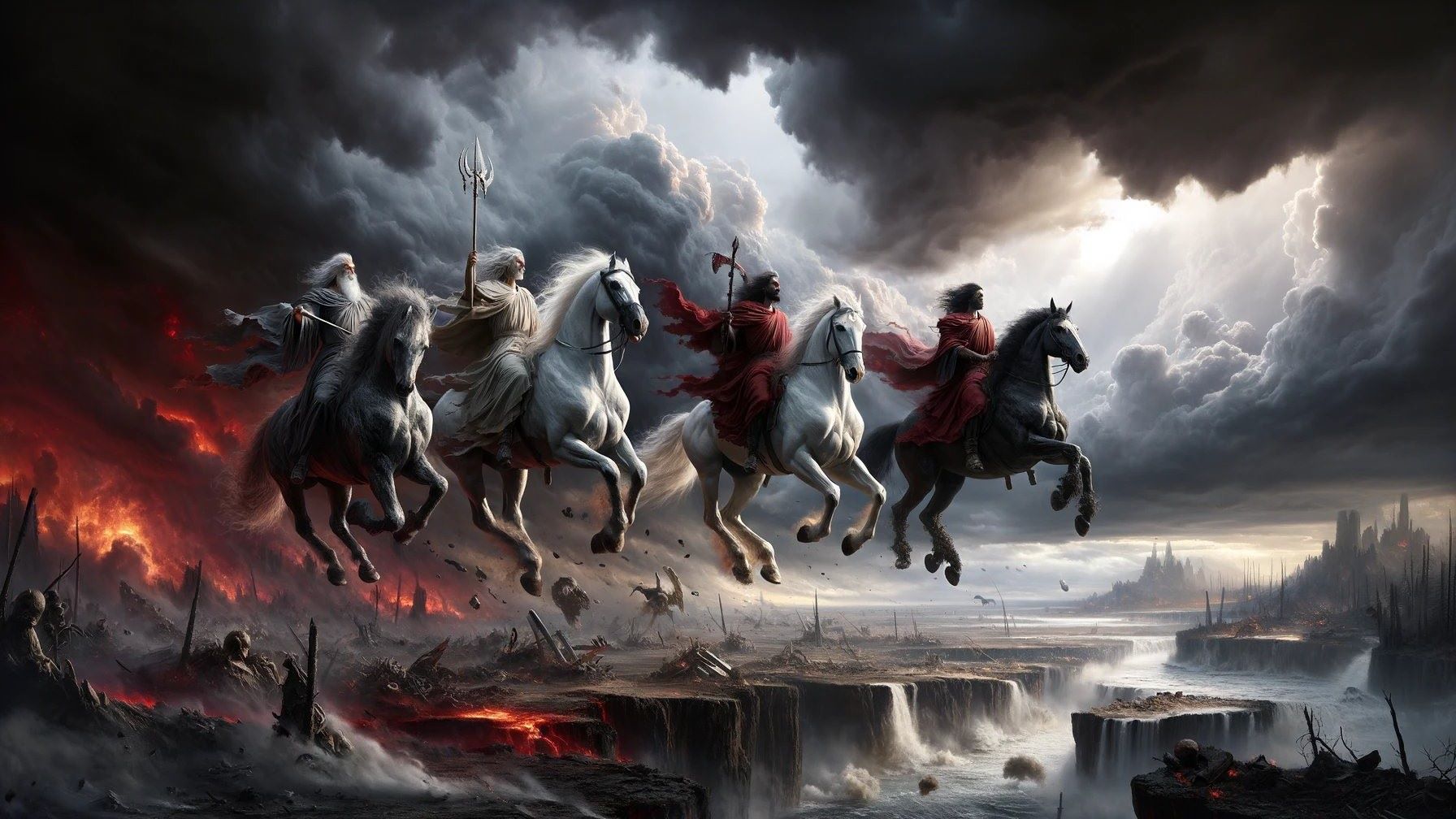

Bible Facts
What Does The Book Of Revelation Say About The Rapture
Published: February 11, 2024
Peter Smith, Editorial Director at Christian.net, combines deep insights into faith, politics, and culture to lead content creation that resonates widely. Awarded for his contributions to religious discourse, he previously headed a major organization for religious communicators, enhancing dialogue on faith's societal impacts.
Discover what the Book of Revelation reveals about the Rapture and gain valuable insights into biblical facts with this comprehensive guide. Explore the significance and implications of the Rapture in the Bible.
(Many of the links in this article redirect to a specific reviewed product. Your purchase of these products through affiliate links helps to generate commission for Christian.net, at no extra cost. Learn more)
Table of Contents
Introduction
The Book of Revelation, the final book of the New Testament, is a captivating and enigmatic piece of literature that has intrigued and inspired readers for centuries. Its vivid imagery, symbolic language, and prophetic messages have sparked countless discussions and interpretations. One of the most debated topics within the context of Revelation is the concept of the Rapture.
The idea of the Rapture has captured the imagination of many, stirring curiosity and contemplation about the end times and the fate of humanity. This concept has been a focal point for theologians, scholars, and believers seeking to understand the intricate tapestry of eschatological events described in the Book of Revelation.
As we delve into the relationship between the Book of Revelation and the Rapture, it is essential to approach this discussion with an open mind and a willingness to explore the diverse perspectives and interpretations surrounding this topic. By examining the biblical text and considering the historical and cultural context in which it was written, we can gain a deeper appreciation for the profound themes and messages conveyed in Revelation.
The intersection of the Book of Revelation and the concept of the Rapture offers a rich tapestry of theological, historical, and spiritual insights. It is a subject that invites contemplation and reflection, prompting individuals to ponder the mysteries of faith, the nature of divine intervention, and the ultimate destiny of humanity.
In the following sections, we will embark on a journey to unravel the intricate connections between the Book of Revelation and the Rapture, exploring the diverse interpretations and perspectives that have shaped our understanding of these profound biblical themes. Through this exploration, we aim to gain a deeper understanding of the timeless messages embedded within the pages of Revelation and the enduring significance of the Rapture within the broader scope of Christian eschatology.
Understanding the Book of Revelation
The Book of Revelation, also known as the Apocalypse of John, stands as a unique and complex piece of biblical literature. Written by the apostle John, it offers a prophetic vision of the end times, presenting a series of vivid and symbolic images that depict cosmic battles, divine judgments, and the ultimate triumph of good over evil. The book is structured as a series of visions and prophecies, delivered to John during his exile on the island of Patmos.
Revelation is characterized by its rich symbolism, drawing upon a tapestry of Old Testament imagery and apocalyptic motifs to convey its profound messages. The use of symbolic language, numerology, and allegorical representations adds layers of depth and complexity to the text, inviting readers to engage in careful interpretation and contemplation.
The overarching themes of Revelation revolve around the sovereignty of God, the victory of Christ, and the ultimate fulfillment of divine purposes in the culmination of history. The book presents a cosmic drama that unfolds on both earthly and heavenly realms, portraying the ongoing struggle between the forces of light and darkness, and culminating in the establishment of God's eternal kingdom.
Central to the message of Revelation is the assurance of God's ultimate triumph and the vindication of the faithful. The book offers hope and encouragement to believers, reminding them of the ultimate victory that awaits those who remain steadfast in their faith, even in the face of adversity and persecution.
Understanding the Book of Revelation requires a careful consideration of its historical and cultural context, as well as an appreciation for its literary and theological richness. It beckons readers to embark on a journey of exploration and interpretation, delving into its enigmatic symbols and prophetic visions to discern the timeless truths embedded within its pages.
As we navigate the intricate landscape of Revelation, we are invited to contemplate the profound mysteries of divine providence, the nature of eschatological events, and the ultimate consummation of God's redemptive purposes. The book serves as a powerful reminder of the enduring hope and assurance that believers find in the promises of God, anchoring their faith in the certainty of His ultimate victory over all powers and principalities.
In the subsequent sections, we will delve deeper into the connections between the Book of Revelation and the concept of the Rapture, exploring the ways in which the prophetic imagery and eschatological themes intersect to convey a message of hope, perseverance, and divine fulfillment.
The Concept of the Rapture
The concept of the Rapture, a term derived from the Latin word "rapturo," meaning "caught up" or "snatched away," holds a significant place in Christian eschatology. It refers to the belief that faithful followers of Christ will be suddenly and supernaturally transported from the earth to meet the Lord in the air. This event is commonly associated with the end times and is intricately linked to the Second Coming of Christ.
The origins of the Rapture concept can be traced to biblical passages such as 1 Thessalonians 4:17, which describes the gathering of believers to meet the Lord in the air. This event is depicted as a moment of divine intervention, where the faithful are rescued from the tribulations and upheavals that precede the final establishment of God's kingdom on earth.
The idea of the Rapture encompasses the notion of imminence, emphasizing the unexpected and sudden nature of Christ's return for His followers. It is often associated with the concept of "watchfulness," urging believers to be vigilant and prepared for the imminent return of the Lord.
Various theological perspectives exist regarding the timing and nature of the Rapture. Pre-tribulation, mid-tribulation, and post-tribulation are among the differing views on when the Rapture will occur in relation to the events of the end times. These perspectives have sparked extensive debate and speculation within Christian circles, contributing to a diverse range of interpretations and beliefs regarding this pivotal eschatological event.
The concept of the Rapture has captured the imagination of believers and has been a source of comfort and hope, particularly in times of uncertainty and upheaval. It serves as a reminder of the ultimate deliverance and redemption that awaits those who remain steadfast in their faith, offering solace and assurance in the face of the trials and tribulations that are anticipated to precede the return of Christ.
As we explore the concept of the Rapture within the broader framework of Christian eschatology, it is essential to approach this topic with reverence and open-mindedness, recognizing the profound impact it has had on the spiritual outlook and theological perspectives of countless individuals throughout history. The concept of the Rapture invites contemplation on the themes of divine intervention, redemption, and the ultimate fulfillment of God's purposes, underscoring the enduring hope and assurance that believers find in the promises of Scripture.
The Book of Revelation and the Rapture
The Book of Revelation holds a central position in discussions about the Rapture, as it presents a rich tapestry of apocalyptic imagery and prophetic visions that have been closely scrutinized for insights into eschatological events. Within the intricate framework of Revelation, the concept of the Rapture is often intertwined with the broader narrative of the end times, offering glimpses of divine intervention, cosmic upheavals, and the ultimate vindication of the faithful.
Revelation's vivid portrayal of celestial phenomena, heavenly beings, and divine judgments has fueled speculation and interpretation regarding the timing and nature of the Rapture. The book's thematic emphasis on the sovereignty of God, the triumph of Christ, and the ultimate consummation of history has prompted readers to discern potential allusions to the Rapture within its prophetic tapestry.
The symbolic language and allegorical representations employed in Revelation have been scrutinized for potential references to the Rapture, leading to diverse interpretations and perspectives. The imagery of believers being "caught up" to meet the Lord in the air, as described in 1 Thessalonians 4:17, has been linked to the Rapture, prompting theologians and scholars to explore the parallels between this biblical passage and the visionary elements of Revelation.
The concept of the Rapture, with its emphasis on the sudden gathering of faithful followers to meet the Lord, resonates with the themes of divine deliverance and the ultimate vindication of the righteous depicted in Revelation. The book's portrayal of cosmic upheavals, divine judgments, and the establishment of God's eternal kingdom has sparked contemplation on the potential correlation between these eschatological events and the anticipated moment of the Rapture.
As believers navigate the enigmatic landscape of Revelation, they are invited to contemplate the profound mysteries of divine providence, the nature of eschatological events, and the ultimate consummation of God's redemptive purposes. The book serves as a powerful reminder of the enduring hope and assurance that believers find in the promises of God, anchoring their faith in the certainty of His ultimate victory over all powers and principalities.
In the intricate interplay between the Book of Revelation and the concept of the Rapture, readers are prompted to discern the timeless truths and profound messages embedded within the prophetic visions and apocalyptic imagery. This exploration invites individuals to engage in thoughtful reflection on the themes of divine intervention, redemption, and the ultimate fulfillment of God's purposes, underscoring the enduring hope and assurance that believers find in the promises of Scripture.
Different Interpretations of the Rapture in Revelation
The concept of the Rapture in the Book of Revelation has been the subject of diverse interpretations and perspectives within Christian eschatology. As readers navigate the intricate tapestry of apocalyptic imagery and prophetic visions in Revelation, they encounter a spectrum of views regarding the potential correlation between the Rapture and the events depicted in the book. These interpretations have given rise to varying theological perspectives and have sparked extensive debate and contemplation within Christian circles.
One interpretation posits that the Rapture is depicted symbolically in the visionary elements of Revelation, particularly in the imagery of believers being "caught up" to meet the Lord in the air. Proponents of this view discern parallels between the language used in 1 Thessalonians 4:17 and the symbolic representations of divine gathering and deliverance found in Revelation. They emphasize the thematic resonance between the concept of the Rapture and the broader narrative of divine intervention and the ultimate vindication of the faithful portrayed in the book.
Another perspective suggests that the Rapture is not explicitly depicted in Revelation but is inferred from the broader themes of divine deliverance and the triumph of Christ over the forces of darkness. Proponents of this view emphasize the symbolic and allegorical nature of the book, cautioning against overly literal interpretations of its apocalyptic imagery. They contend that while Revelation offers profound insights into eschatological events, the specific timing and nature of the Rapture may be open to diverse interpretations within the broader framework of biblical prophecy.
Additionally, some interpretations propose that the Rapture is intricately linked to the unfolding of end-time events depicted in Revelation, serving as a pivotal moment of divine intervention preceding the establishment of God's eternal kingdom on earth. Proponents of this view draw connections between the prophetic sequences in Revelation and the anticipated gathering of believers to meet the Lord, viewing the Rapture as a transformative event that heralds the culmination of God's redemptive purposes in human history.
These diverse interpretations underscore the complexity and richness of the relationship between the Book of Revelation and the concept of the Rapture. They invite readers to engage in thoughtful reflection and discernment, prompting individuals to explore the profound mysteries of divine providence, the nature of eschatological events, and the ultimate consummation of God's redemptive purposes. As believers grapple with the enigmatic symbolism and prophetic visions of Revelation, they are encouraged to approach the concept of the Rapture with humility and reverence, recognizing the enduring hope and assurance that it offers within the broader tapestry of Christian eschatology.
Conclusion
In conclusion, the intricate relationship between the Book of Revelation and the concept of the Rapture offers a profound tapestry of theological insights, spiritual contemplation, and eschatological significance. The enigmatic symbolism, prophetic visions, and apocalyptic imagery found in Revelation have sparked diverse interpretations and perspectives regarding the potential correlation between the Rapture and the events depicted in the book. This rich tapestry of theological discourse invites readers to engage in thoughtful reflection, discerning the timeless truths and enduring messages embedded within the prophetic narrative of Revelation.
The Book of Revelation stands as a testament to the enduring hope and assurance that believers find in the promises of God, anchoring their faith in the certainty of His ultimate victory over all powers and principalities. It beckons individuals to embark on a journey of exploration and interpretation, delving into its enigmatic symbols and prophetic visions to discern the profound mysteries of divine providence, the nature of eschatological events, and the ultimate consummation of God's redemptive purposes.
As believers navigate the intricate landscape of Revelation, they are prompted to contemplate the profound themes of divine intervention, redemption, and the ultimate fulfillment of God's purposes. The concept of the Rapture, with its emphasis on the sudden gathering of faithful followers to meet the Lord, resonates with the broader narrative of divine deliverance and the ultimate vindication of the righteous depicted in Revelation. It serves as a source of comfort and hope, particularly in times of uncertainty and upheaval, offering solace and assurance in the face of the trials and tribulations that are anticipated to precede the return of Christ.
The diverse interpretations of the Rapture within the context of Revelation underscore the complexity and richness of biblical prophecy, inviting individuals to approach this topic with humility and open-mindedness. The concept of the Rapture prompts contemplation on the themes of divine intervention, redemption, and the ultimate fulfillment of God's purposes, underscoring the enduring hope and assurance that believers find in the promises of Scripture.
In the grand tapestry of Christian eschatology, the concept of the Rapture and its potential connections to the Book of Revelation continue to inspire contemplation, dialogue, and spiritual exploration. It stands as a testament to the enduring significance of biblical prophecy and the timeless messages that continue to resonate with believers across diverse cultural and historical contexts. As we ponder the mysteries of the end times and the ultimate consummation of God's redemptive purposes, we are reminded of the enduring hope and assurance that await those who remain steadfast in their faith, anchoring their trust in the promises of Scripture.


